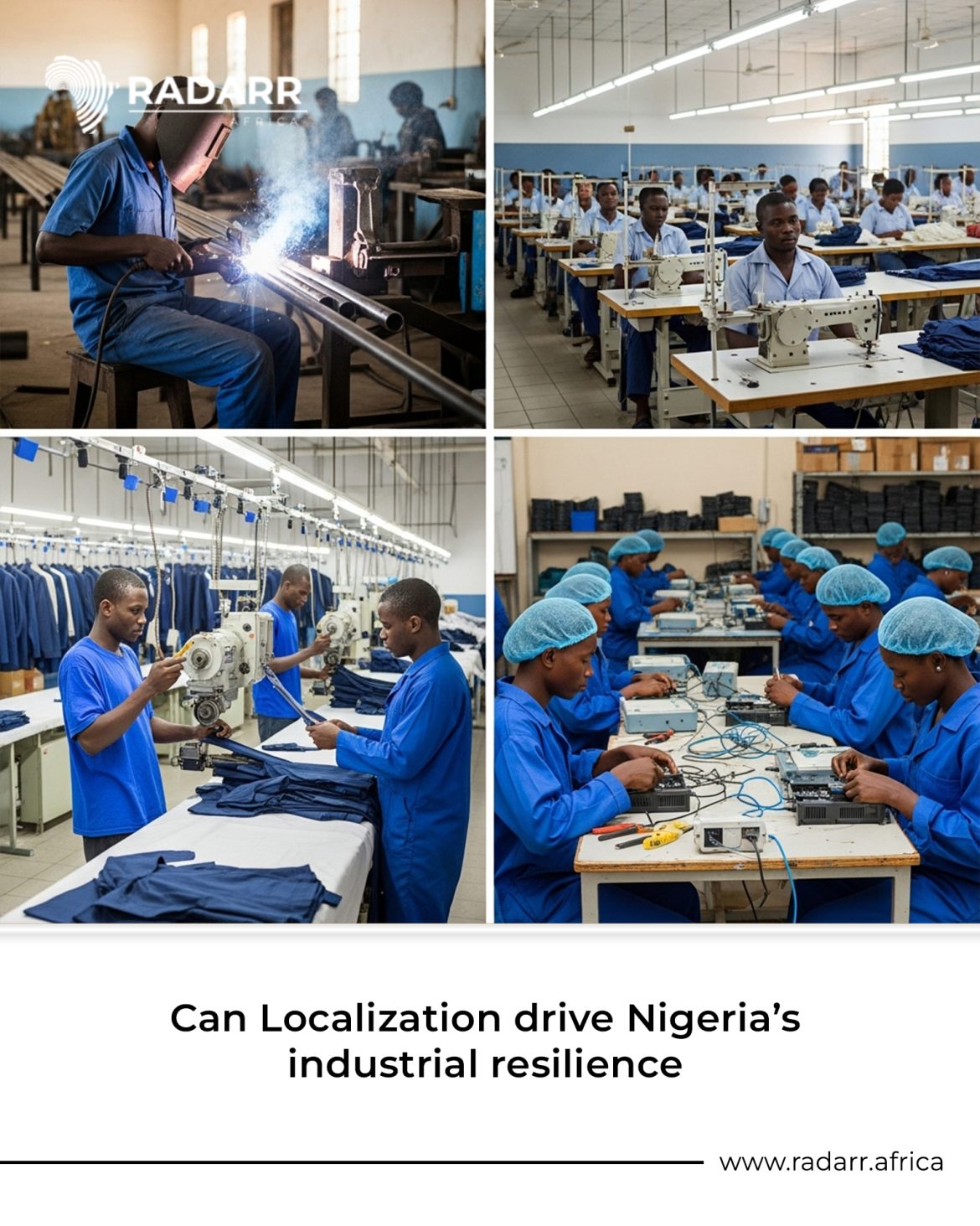Across Lagos, Kano, and Port Harcourt, the chatter in factories, workshops, and tech hubs carries a common question—can Nigeria truly rely on local production to withstand global shocks? The past decade has exposed the vulnerabilities of depending heavily on imports, whether it is raw materials for manufacturing, consumer goods, or critical pharmaceuticals. Every fluctuation in the global market, every foreign exchange crunch, or every shipping delay sends ripples through the economy. Today, policymakers, business leaders, and investors are looking at localization not just as a buzzword, but as a strategic path toward industrial resilience and economic stability.
Localization is essentially the act of producing goods and services domestically, reducing reliance on imports, and nurturing homegrown talent and industries. In practice, this means sourcing raw materials locally, encouraging domestic manufacturing, and building value chains that can operate even when the international market wavers. The promise is clear: fewer supply chain disruptions, greater job creation, and more control over industrial outputs. For Nigeria, a country with a young and energetic population, abundant natural resources, and a growing consumer base, localization could be the missing link in translating raw potential into tangible industrial strength.
For decades, Nigeria’s industrial landscape has been shaped by imported goods and foreign technologies. While multinational companies brought investment, they also created dependency. When global disruptions hit—be it the COVID-19 pandemic, currency fluctuations, or geopolitical tensions—the country felt the impact immediately. Industries faced shortages, inflation soared, and local manufacturers struggled to compete with cheaper imports. This experience highlighted a fundamental truth: relying too heavily on foreign supply chains leaves the economy vulnerable. In response, stakeholders have begun advocating for policies that incentivize local production, support domestic SMEs, and develop infrastructure that can sustain long-term industrial growth.
Localization is already showing promise in sectors like agriculture, food processing, and consumer goods. For instance, local manufacturers of packaged foods and beverages are increasingly sourcing raw materials such as cassava, maize, and palm oil from Nigerian farmers. This not only boosts local farming communities but also ensures a more stable and predictable supply of inputs for manufacturers. Similarly, in the pharmaceutical sector, Nigerian companies are producing essential medicines and health products that were previously imported, creating a buffer against global supply disruptions and foreign price volatility. These success stories demonstrate that with proper planning and investment, localization can become a viable path to industrial resilience.
However, challenges remain. Scaling local production requires significant investment in infrastructure, technology, and skilled labor. Many domestic manufacturers face high operating costs due to power shortages, poor logistics, and limited access to affordable financing. Without these foundational supports, the cost of local production can surpass imported alternatives, making it difficult to compete in both price and quality. Addressing these gaps requires a concerted effort from government agencies, private investors, and development partners to create enabling environments that reduce production costs and enhance competitiveness.
The government has a pivotal role to play in this process. Policies such as tax incentives for local manufacturers, import substitution strategies, and industrial clusters designed to reduce operational costs are critical to creating a sustainable industrial ecosystem. Beyond policies, there is also the need to foster a culture of patronage for local products among Nigerians themselves. When citizens consciously choose Nigerian-made goods over imports, the demand signal strengthens domestic industries and encourages reinvestment into local value chains.
Entrepreneurs and industrialists are increasingly recognising that resilience is as much about mindset as it is about strategy. By investing in local supply chains, training workers, and adopting technologies that maximize efficiency, Nigerian businesses can create products that meet international standards while remaining locally sourced. In essence, localization is not just a response to crises; it is a proactive approach to future-proofing the industrial economy.
The potential benefits of a localized industrial system extend beyond economics. It creates jobs across multiple sectors, empowers communities, and builds national pride. It reduces the nation’s exposure to global shocks and allows Nigeria to dictate its own industrial trajectory. More importantly, localization positions the country to harness its natural and human resources in a way that drives sustainable growth, innovation, and self-reliance.
As Nigeria continues to grapple with inflation, currency volatility, and foreign supply chain disruptions, the question is no longer whether the country can afford to localize, but whether it can afford not to. The path to industrial resilience is paved with locally sourced inputs, domestic value addition, and homegrown innovation. For a country eager to translate its vast potential into economic stability, the time to invest in localization is now.
